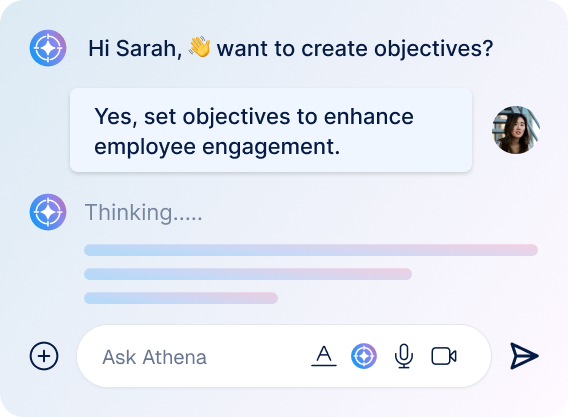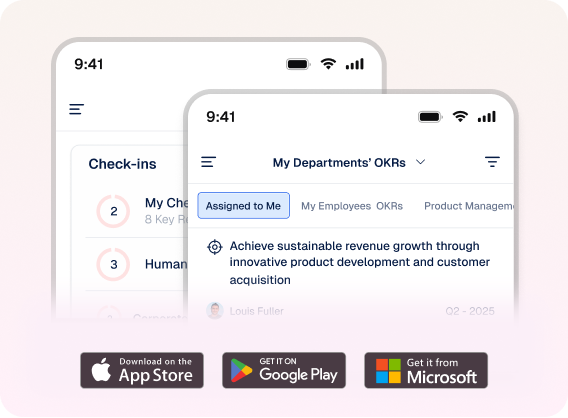
1. Know When and What to Delegate
Only some tasks deserve to be passed to your teammate’s desk. Here’s the golden rule: Delegate only tasks that are- Repeatable and well-defined: Clear instructions minimize confusion and ensure quality results.
- Within your team’s skillset: Don’t throw someone in the deep end with an advanced project they need to be equipped for.
- Time-consuming but not strategic: Free yourself from administrative burdens to focus on the bigger picture.
First, have a definite, clear practical ideal; a goal, an objective. Second, have the necessary means to achieve your ends; wisdom, money, materials, and methods. Third, adjust all your means to that end.
2. Choose the Right Person for the Right Job
Effective delegation starts with understanding who you’re working with. It’s about matching the right task to the right person, considering their skills, interests, and developmental needs.- Skills and strengths: Match the task to someone’s expertise for optimal results.
- Workload and capacity: Don’t overload someone already drowning in their tasks.
- Interest and motivation: People are more engaged when they find the work stimulating.
3. Set Clear Expectations
The devil is in the details. They say a task well begun is half done, and that begins with clear, concise communication. Ensure you outline what success looks like and any deadlines, resources, and constraints involved. Leave no room for assumptions. Clearly define the task: What needs to be done? What’s the desired outcome?- Outline expectations: Deadlines, quality standards, and communication channels.
- Provide context and background: Why is this task important? How does it fit into the bigger picture?
4. Don’t Micromanage
Handing over a task without the authority to make decisions is like giving someone a car without the keys. Ensure your team members have the autonomy to carry out their tasks effectively. Micromanaging suffocates initiative. This builds trust and encourages accountability.- Provide resources: Tools, training, or access to information they may need.
- Schedule check-ins: Regular touchpoints to answer questions and offer guidance. Offer autonomy: Allow space for them to approach the task in their way (within reason).
Ready to learn more about achieving continuous learning for your organization?
5. Embrace the Power of Feedback
Feedback is a gift, not a punishment. Create an environment where questions are encouraged and feedback flows freely. Regular check-ins help keep things on track without micromanaging. Remember, the goal is to guide, not control.- Start with positive reinforcement: Acknowledge what they did well.
- Offer constructive feedback: Focus on specific areas for improvement.
- End on a positive note: Reiterate your confidence in their abilities.
6. Celebrate Wins
Recognition is a powerful motivator! Acknowledgment goes a long way in keeping morale high. Celebrate milestones and successes, no matter how small. Recognition fosters a sense of ownership and pride in work.- Create a culture of simple “thank you” or public shout-outs.
- Reward the wins, both big and small.
- Encourage a culture of recognition.
7. Foster a Culture of Open Communication
Encourage your team to ask questions, raise concerns, and provide feedback. Open communication fosters trust and a collaborative environment.- Show the team that their opinions and ideas are valued.
- Create safe spaces for communication with an open-door policy, anonymous suggestion boxes, or one-on-one meetings.
- Acknowledge team members who actively participate in discussions, raise questions, or provide constructive feedback.
8. Delegate Growth Opportunities, Not Just Chores
Delegation is about more than just offloading busy work. Stretch assignments can help your team develop new skills and boost confidence.- Match growth opportunities to individual strengths and aspirations.
- Provide ongoing support and mentorship.
- Celebrate learning and development.
9. Lead by Example
Show your team that delegation is a valuable tool by openly discussing your priorities and capacity with them. This will help them understand why delegation is necessary and foster trust in the process.- Be transparent about your workload.
- Don’t just delegate the mundane. This demonstrates your commitment to empowering others.
- Publicly acknowledge the value of delegated work
10. Delegation is a Two-Way Street
Be open to feedback on your delegation style. Ask your team what works for them and what could be improved.- Schedule dedicated time to discuss how the delegation process works for you and your team members.
- Actively solicit feedback on your delegation style.
- Be open to adjusting your approach.
Conclusion
Remember, delegation is a skill that takes practice. By following these tips and embracing a growth mindset, you’ll be well on your way to creating high-performance teams. Remember, the goal of delegation is not just to free up your time but to empower your team to achieve their full potential.To learn more about how OKR software can optimize your organization’s performance!
Related Articles
-
Understanding Parkinson Law and Its Impact on Productivity
We all know the drill: “We’ve got plenty of time.” A project, a presentation, a new initiative we give ourselves... Read more
-
Can the Pomodoro Technique Improve Your Productivity and Time Management?
Your to-do list is staring at you. You’re staring back. A silent standoff. You know what needs to get done,... Read more
-
Understanding and Managing Risk Exposure Index (REI)
Risk Exposure is a vital Key Performance Indicator (KPI) in project management. It measures the potential impact of risks by... Read more
-
Dynamics of Cost-Benefit Analysis for Business Success
Picture yourself standing at the crossroads, weighing whether to introduce groundbreaking technology into your startup or to initiate a significant... Read more




